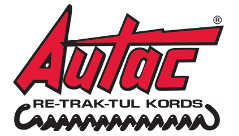In today’s rapidly evolving industrial landscape, the demand for custom electrical cables has grown significantly. As businesses strive for efficiency, safety, and optimal performance, tailored electrical cables have become a crucial component in various industry applications. This article will delve into the significance of custom electrical cables, exploring their benefits, applications, and considerations. By using custom electrical cables for industry applications, businesses can improve safety and reduce the risk of accidents or equipment damage.
Custom electrical cables for industry applications are designed to meet the specific needs of each business, ensuring maximum efficiency and productivity. Whether you’re an industry professional or simply interested in learning more about electrical cables, this article aims to provide valuable insights.
Introduction
In today’s industrial settings, standardized electrical cables may not always meet the unique requirements of specific applications. Custom electrical cables offer a tailored solution that addresses the challenges and demands of various industries. By optimizing cable design, materials, and configurations, custom cables enhance efficiency, safety, and overall performance in industrial operations. When it comes to powering electronic devices. Using custom made power cords can make a significant difference in performance.
Understanding Custom Electrical Cables
Custom electrical cables are cables specifically designed and manufactured to meet the precise needs of an industry or application. These cables are tailored to deliver optimal performance and reliability in specific operating conditions. Custom electrical cables for industry applications are available in a variety of lengths, gauges, and configurations, allowing businesses to choose the best solution for their needs. The flexibility of customization ensures that the cable is engineered to withstand environmental factors, voltage requirements, temperature variations, and other specific parameters.
Benefits of Custom Electrical Cables
1. Enhanced Performance
Custom electrical cables are designed with specific performance requirements in mind. By optimizing cable parameters, such as conductor size, insulation thickness, and shielding, these cables offer improved electrical characteristics, reduced signal loss, and minimized interference, resulting in enhanced overall performance.
2. Increased Reliability
Standardized cables may not always provide the necessary reliability for critical applications. Custom electrical cables, on the other hand, are engineered to withstand the unique challenges of industrial environments, such as high temperatures, corrosive substances, or extreme mechanical stress. This ensures a longer lifespan and reduces the risk of unplanned downtime and costly repairs.
3. Improved Safety
Custom electrical cables can be designed to meet safety standards and regulations specific to an industry or application. By incorporating flame-retardant materials, high-voltage insulation, or other safety features, these cables contribute to a safer working environment and minimize the risk of electrical accidents.
4. Cost Efficiency
While the initial investment in custom electrical cables may be higher than off-the-shelf alternatives, the long-term cost benefits are significant. Additionally, tailored cables eliminate the need for excessive cable lengths or unnecessary features, resulting in optimized cost efficiency.
Applications of Custom Electrical Cables
Custom electrical cables find applications across various industries and sectors. Some of the key areas where custom cables are utilized include:
1. Manufacturing and Automation
In manufacturing and automation processes, custom electrical cables play a critical role in connecting machinery, sensors, and control systems. These cables are designed to withstand the demands of continuous operation, high-speed data transmission, and exposure to harsh conditions, ensuring seamless and efficient production processes.
2. Oil and Gas Industry
The oil and gas industry operates in demanding environments, such as offshore platforms or oil refineries, where safety, reliability, and durability are paramount. Custom electrical cables are engineered to withstand extreme temperatures, resist oil and chemical exposure, and maintain signal integrity, enabling efficient and safe operations in this industry.
3. Renewable Energy Systems
Custom electrical cables are crucial in renewable energy systems, including solar farms, wind turbines, and battery storage facilities. These cables are designed to withstand environmental factors, such as UV radiation, temperature fluctuations, and moisture, while ensuring efficient power transmission and minimizing energy loss.
4. Transportation and Infrastructure
In transportation and infrastructure projects, custom electrical cables are used for various applications. Including railway systems, airports, and smart city initiatives. These cables are tailored to withstand vibrations, mechanical stress, and electromagnetic interference, ensuring reliable and secure communication, power distribution, and control.
Factors to Consider when Choosing Custom Electrical Cables
When selecting custom electrical cables for specific industry applications, several factors need to be taken into consideration:
- Environmental Conditions: Assess the operating environment, including temperature range, exposure to chemicals or moisture, and any other potential hazards. The environment in which the cable will be used is crucial. The cable must be able to withstand any harsh conditions such as extreme temperatures, chemicals or moisture. This means that the material used for insulation and jacketing should be carefully selected.
- Electrical Requirements: Determine the voltage, current, and signal characteristics required for the application to ensure proper cable sizing and insulation selection. Choosing a cable with insufficient capacity can lead to overheating and damage, while selecting one with too much capacity can result in unnecessary expenses. It is also essential to consider the length of the cable required and any specific connectors or terminations needed.
- Mechanical Stress: Consider the level of mechanical stress the cable may be subjected to, such as bending, twisting, or pulling forces.
- Flexibility and Bend Radius: Evaluate the flexibility and bend radius requirements to ensure the cable can be installed and routed easily without compromising performance.
- Regulatory Compliance: Ensure that custom electrical cables comply with relevant industry standards, regulations, and safety certifications.
Lastly, it is important to choose a reputable manufacturer who has experience in producing custom electrical cables for industrial applications. A reliable manufacturer will ensure that all necessary safety standards are met and provide technical support when needed.
Manufacturing Process of Custom Electrical Cables
The manufacturing process of custom electrical cables involves several stages:
- Design and Engineering: Based on the application requirements, engineers design the cable, considering factors such as conductor material, insulation type, shielding, and connectors. This involves collaborating with the customer to gather information about the voltage, current ratings, temperature range, and any other specifications. Based on these requirements, the cable design is created, taking into consideration factors such as insulation type, shielding options, and overall cable structure.
- Material Selection: High-quality materials are chosen to meet the specific needs of the application, ensuring performance, durability, and safety. Factors such as electrical conductivity, mechanical properties, and chemical resistance are taken into consideration to ensure optimal performance and durability.
- Cable Assembly: The selected materials are carefully assembled, with each component prepared and combined according to the cable design. In certain applications, multiple insulated conductors may need to be combined to form a cable. The insulated conductors are cabled together in the desired configuration.
- Testing and Quality Control: The custom cables undergo rigorous testing to verify electrical performance, insulation integrity, and compliance with industry standards. Before custom electrical cables are ready for use, they undergo rigorous testing to ensure compliance with industry standards and customer specifications. This testing may include checks for electrical continuity, insulation resistance, voltage withstanding, and dimensional accuracy.
- Packaging and Delivery: Once the cables pass the quality control process, they are packaged and delivered to the customer and ready for installation. They are packaged and prepared for delivery to the customer. Proper packaging ensures the cables are protected during transportation and storage. The cables are then shipped to the customer’s location, ready to be installed and integrated into the intended industrial application.
Ensuring Safety and Compliance with Custom Electrical Cables
Safety and compliance are crucial aspects of custom electrical cables. It is essential to work with reputable manufacturers that adhere to industry standards and regulations. By ensuring proper material selection, testing, and certification, the risk of electrical hazards and non-compliance can be minimized. Regular maintenance, inspections, and adherence to installation guidelines also contribute to the long-term safety and reliability of custom electrical cables.
Maintaining and Troubleshooting Custom Electrical Cables
- When it comes to custom electrical cables, maintenance, and troubleshooting are crucial for ensuring optimal performance and safety.
- Regular inspections should be conducted to identify any signs of wear or damage, such as frayed wires or exposed conductors.
- It’s also important to check the cable’s connectors and terminations for any signs of corrosion or loose connections.
- If an issue is identified, it’s important to address it promptly to prevent further damage or potential safety hazards.
- Troubleshooting may involve testing the cable with a multimeter or other diagnostic tool to pinpoint the problem.
- In some cases, repairs may be necessary, while in others, replacement may be the best option.
- Proper maintenance and troubleshooting can help extend the lifespan of custom electrical cables and ensure they continue to meet industry standards for performance and safety.
- By staying vigilant and addressing issues as they arise, you can avoid costly downtime and potential accidents in your industrial applications.
Future Trends in Custom Electrical Cables
As technology advances and industries evolve, the future of custom electrical cables holds several exciting possibilities. Some emerging trends include:
- Miniaturization: The demand for compact and lightweight custom cables will continue to grow as industries strive for space optimization and increased mobility. One key trend is the ongoing miniaturization of electrical components. As devices and systems become smaller and more compact, custom electrical cables will need to follow suit.
- Smart Cables: Integration of sensors, monitoring systems, and communication capabilities within the cable structure will enable real-time data collection and analysis for proactive maintenance and improved performance. The development of custom cables with increased durability and resistance to harsh environments. These cables can withstand extreme temperatures, moisture, chemicals, and other environmental factors that would damage traditional cables. This makes them ideal for industries such as oil and gas, mining, and aerospace where conditions can be challenging.
- Sustainable Materials: The use of eco-friendly materials in custom cables will align with the increasing focus on sustainability and environmental responsibility. There is also a growing focus on sustainability in cable manufacturing. Custom cable manufacturers are exploring ways to reduce waste and energy consumption during production while still maintaining quality standards. This includes using eco-friendly materials and implementing more efficient manufacturing processes.
- High-Speed Data Transmission: With the rise of Industry 4.0 and the Internet of Things (IoT). Custom electrical cables capable of transmitting high-speed data with low latency will be in high demand. With the increasing demand for high-speed data transmission and power delivery, custom cables are being designed to meet these needs. One trend that is emerging is the use of fiber optic cables in industrial applications. Fiber optic cables offer faster data transfer rates and greater bandwidth than traditional copper cables. It’s making them ideal for industries that require high-speed communication.
Conclusion
Custom electrical cables are vital components in industry applications, offering enhanced performance, reliability, and safety. by tailoring the cable design and specifications to specific requirements. These cables enable efficient operations in various sectors, including manufacturing, oil and gas, renewable energy, and transportation.By using custom electrical cables for industry applications. Businesses can reduce downtime and improve their bottom line.
When choosing custom electrical cables, considering environmental conditions, electrical requirements, mechanical stress, and regulatory compliance is essential. Regular maintenance, troubleshooting, and adherence to safety guidelines contribute to the long-term success of custom electrical cable installations.Custom electrical cables for industry applications are an affordable and effective solution for businesses looking to improve their operations.




Recent Comments